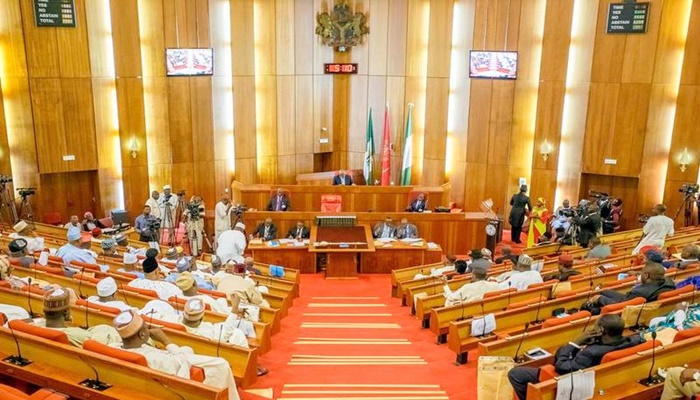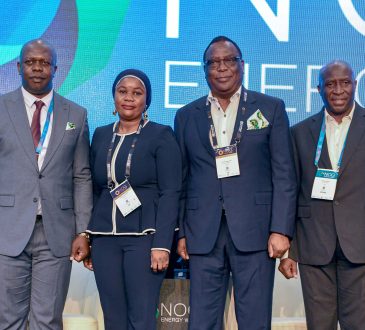
The Petroleum Industry Bill (PIB), seeking unbundling of the Nigerian National Petroleum Corporation (NNPC) into two entities, which was introduced in 2008, was passed for second reading at the Senate on Wednesday.
The bill which was sponsored by Senator Tayo Alasoadura (APC-Ondo) seeks splitting of the NNPC into Nigerian Petroleum Assets Management and the National Oil Company.
The PIB was first introduced in 2008 but it was not passed by the 6th and 7th assemblies, Alasoadura noted in his lead debate, adding that even during the current 8th Assembly, in April, deliberation on the bill was stalled, thereby delaying its consideration till Wednesday.
He explained further that the bill was to provide transparency and accountability in the management of Nigeria’s petroleum resources.
The bill establishes a framework for the creation of commercially oriented and profit driven entities that ensure value addition and internationalization of the country’s petroleum industry, he said.
The NOC, as proposed in the bill, will be an “integrated oil and gas company operating as a fully commercial entity and will run like a private company.
“It also provides for the establishment of a single petroleum regulatory commission which will focus mainly on regulating the industry.
“The poor performance of the NNPC is a major concern. The commercialisation of the corporation and its splitting into two entities is for more efficiency and to enhance performance.”
Senators, including Bernabas Gemade (APC – Benue) and James Manager (PDP – Delta) spoke in support of the bill before Senate resolved via voice vote to pass the bill for second reading.
Details of the Petroleum Industry Bill (PIB)
Sponsor: Sen. Omotayo D. Alasoadura and Twenty-eight Co-Sponsors
Long Title: An Act to Provide for the Governance and Institutional Framework for the Petroleum Industry and for Other Related Matters.
Objectives:
– Creates an efficient and effective governing institution with clear and separate roles for the petroleum industry;
– Establishes a framework for the creation of commercially oriented and profit driven petroleum entities that ensures value addition and internationalization of the petroleum industry;
– Provide transparency and accountability in the administration of Nigeria’s petroleum resources; and
– Fosters a conducive business environment for petroleum industry operations.
– The bill splits the NNPC into two separate entities: the Nigeria Petroleum Assets Management Co (NPAM) and a National Oil Company (NOC).
– The NOC will be an “integrated oil and gas company operating as a fully commercial entity” and will run like a private company.
– The NOC will keep its revenues, deduct costs directly and pay dividends to the government thus putting an end to the era of waiting for Federal allocation for funding and always failing to meet cash call obligations.
Key Provisions:
– Assigns responsibility for the determination, formulation and monitoring of Government policy for the petroleum industry to the Minister of Petroleum;
– In the event of a state of national emergency as specified in the 1999 Constitution of the Federal Republic of Nigeria, the Minister shall have the right of pre-emption of all petroleum products obtained, marketed or otherwise dealt with under any license granted under this Act or any other enactment.
Establishes the Nigeria Petroleum Regulatory Commission as a corporate body. “The Commission” shall have the power to:
– Enter into contracts and incur obligations;
– Acquire, hold, mortgage, purchase and deal with property;
– Perform all such things as are necessary for or incidental to the carrying out of its functions and duties under the Act.
The Objectives of the Commission are to:
– Promote he healthy, safe and efficient conduct of petroleum operations in an environmentally and friendly and sustainable manner;
– Promote the efficient, safe, effective and sustainable infrastructural development of the petroleum industry;
– Ensure the compliance with all applicable laws and regulations governing the petroleum industry.
Functions of the Commission:
– The Commission shall administer and enforce policies, laws and regulations relating to all aspects of petroleum operations which are assigned to it under this Act or any regulations made in pursuance of this Act or under any other enactment;
– Monitor and enforce compliance with the terms and conditions of all leases, licenses, permits, and authorizations issued in respect of any petroleum operations;
– In consultation with the Ministry of Environment, ensure adherence to applicable national and international environmental and other technical standards by all persons involved in petroleum operations.
– The Commission will have the power to modify, extend, renew, suspend and revoke any license or permit issued by it pursuant to the provisions of this Act;
– The Commission may make regulations necessary to give proper effect to the provisions of this Act.
– The Commission shall ensure any decisions of order made by the Commission contains the basis for the decision or order, are properly recorded in writing and are accessible to the public at reasonable times and places.
The Nigeria Petroleum Assets Management Company and the National Petroleum Company
– Within six months of the enactment of the Act, the Minister, under the Companies and Allied Matters Act (CAMA) incorporate the Nigerian Petroleum Assets
– Management Company and the National Petroleum Company;
– The Nigeria Petroleum Assets Management Company shall manage the assets detailed in the Fourth Schedule to this Act;
– The National Petroleum Company shall operate the assets transferred to it as a fully commercial entity.
– This Act outlines the governance, funding and other authorities for both newly created entities.






